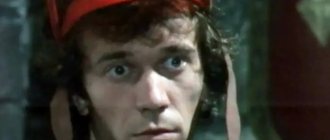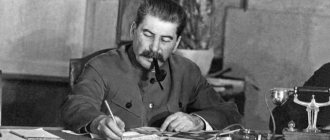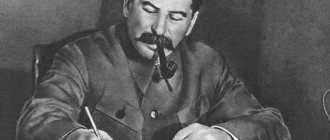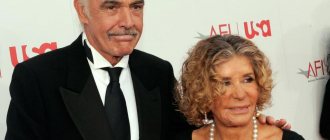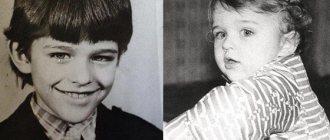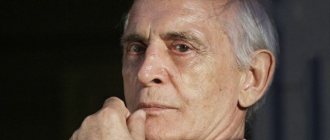Biography
The second and most beloved son of Joseph Vissarionovich Stalin, Vasily, was born on March 24, 1920 in Moscow. At that time, his father was still serving as the chief commissioner of the RSFSR Inspectorate for National Issues.
The boy’s mother was the second wife of the future leader of nations, Nadezhda Alliluyeva, half German and half Gypsy by nationality. She was 20 years younger than Joseph and, despite the fact that quarrels often broke out between them, Nadezhda loved her husband very much. And Stalin himself often called her “my Tatka.”
Published by Tamara Uzhakhova Wednesday, October 14, 2020
Vasily Stalin in childhood, his sister Svetlana Alliluyeva and father Joseph Stalin
Since his parents were heavily involved in government affairs (his mother was the editor of a communist newspaper), little Vasily grew up without his mother’s affection from childhood. After the suicide of Nadezhda Alliluyeva in 1932, he was completely deprived of frequent communication with his father, who had changed greatly in character. After the death of his mother, the young man’s mentors were mainly security officers who reported to General Nikolai Vlasik. Vasily was always under secret security, consisting of KGB agents.
In 1938, Vasily entered the Kachin Aviation School as a cadet and graduated from it in two years. Many teachers noted the young man as a careless student who shirked theory classes. But in practice he proved himself to be a talented pilot with a strong character.
Stalin's son spent the pre-war year working on improving his flight training. When the war began, he immediately applied to go to the front. But Stalin himself did not allow Vasily to go to war, as he was afraid that he might lose his favorite. And not without reason: according to some sources, the elder Yakov died at the very beginning of the war, according to others, he was captured.
Education
Vasily received his secondary education at Moscow school No. 25, an educational institution for children of the party elite. Despite his affection, Joseph Vissarionovich demanded from teachers that no concessions be made to his son in the process of teaching.
In 1938, Vasily began to realize his childhood dream - to become a pilot. For two years he studied at the Kachin Aviation School named after. A.F. Myasnikov. According to the teachers, the young man was negligent in the educational process and often missed classes. Nevertheless, in practice, Vasily Iosifovich turned out to be a first-class pilot, who was predicted to have a brilliant career.
From 1940 to 1941, Stalin's son was listed as a pilot of the 16th Fighter Aviation Regiment of the Moscow Military District and was a student at the Air Force Academy. NOT. Zhukovsky.
Personal life
Over the years of his life, Vasily proved himself to be a person unencumbered by moral values. In addition to his four official wives, he had many small affairs with representatives of the fair sex, who often ended up married to military or political figures. He left behind seven children, four of whom were natural and the rest adopted.
His first wife was the daughter of the head of the service garage, Galina Aleksandrovna Burdonskaya, with whom he married on the eve of the war. The marriage lasted 4 years, after which Vasily left behind a son, Alexander, and a daughter, Nadezhda. Both connected their lives with theatrical art.
Colonel V.I. Stalin with his wife Galina Burdonskaya and son Alexander.
1942 Published by Litvinova Tatyana Friday, October 13, 2021
Vasily Stalin with his wife Galina Burdonskaya and son Alexander
For the second time, Vasily married the daughter of a USSR marshal, the famous beauty Ekaterina Semyonovna Timoshenko, who gave birth to his second son, Vasily. His fate was unfortunate, as he became heavily involved in drugs and died at a young age, taking his own life. In this union, a daughter, Svetlana, was also born. Unfortunately, the media contains few photos and written materials about Vasily’s second marriage; mainly his descendants from his first union became famous.
In parallel with his second family, the restless Vasily began an affair with the USSR swimming champion Kapitolina Georgievna Vasilyeva, whom he married immediately after his divorce from Tymoshenko. But the marriage also did not last more than 3 years. It is interesting that all three wives came to see Vasily Stalin in prison in turn. Apparently, women continued to love him even after numerous betrayals.
Vasily entered into his last marriage with Maria Ignatievna Nusberg, nee Shevargina, who was an ordinary nurse, on the eve of his death. He also adopted her two children, who, like his adopted daughter from Vasilyeva, took the surname Dzhugashvili. Vasily Iosifovich’s grandchildren appeared only from his daughter Nadezhda - granddaughter Anastasia Aleksandrovna and great-granddaughter Galina Vasilievna.
The mysterious death of Vasily Stalin
Published: 10/25/2001 0:00
There are three versions of the death of Vasily Stalin, and all of them are connected with Kazan. The first is suicide. The second was killed in a drunken brawl, as Sergo Beria talks about in the book “My Father, Lavrenty Beria.” And finally, Svetlana Alliluyeva believes that his last wife Maria was involved in the death of her brother...
But what kind of Maria? Writer Stanislav Gribanov in his book “Hostages of Time” describes how in Kazan Vasily met his last love, whom he “affectionately called Marisha.” “We lived very modestly financially,” recalls “Marisha.” — Vasily received a pension of 300 rubles, of which he sent 150 to his first wife. And also my salary. He always got up very early, went to the kitchen, and prepared breakfast. He never left the house, he only went to the KGB to Black Lake to receive his pension, and even then he was always with me. Not for a moment did he leave the feeling that he would be taken away...”
Maria Nikolaevna is an employee of one of the Kazan universities. She asked not to use her last name, since she was not officially registered with Vasily Stalin.
Vasily had another friend named Maria - Maria Ignatievna, who came with him to Kazan, leaving her post as a nurse at Clinical Hospital No. 23 in Moscow. In the personnel department of OJSC Elekon, as one of the Kazan newspapers unearthed, “the personal card of Vasily Dzhugashvili’s second wife, Maria, has been kept for almost forty years.” Let us clarify: not the second wife, but the third. The disgraced general, including both “Marishas,” had four wives, but he was legally married to only one of them—the daughter of Marshal Tymoshenko. Her predecessor, Kapitolina Georgievna, a 19-time national swimming champion, who, according to the writer A. Sukhomlinov, remained “faithful to Vasily until the end of her days,” alas, was considered “unmarried.”
Svetlana Alliluyeva fiercely hated one of the wives of her loving brother, namely nurse Maria Nusberg: “They knew (and warned me) that she was a paid KGB agent at the Vishnevsky Institute, where she worked and where Vasily lay for some time for examination. He had just been released from prison by Khrushchev and was suffering from stomach ulcers, constriction of the blood vessels in his legs and complete exhaustion. There he was “bewitched” by this woman, who then followed him to Kazan, where she illegally married him. It’s illegal, since my brother has not yet divorced his first wife...”
Relatives of Vasily Dzhugashvili believe that his “wife-nurse-KGB agent” was involved in his death, giving him a lethal injection. When they arrived in Kazan, they saw Vasily “in a pool of blood, with bruises on his arms and legs”...
But all these versions - suicide, drunken brawl, lethal injection - are questioned by serious researchers. The life and death of famous people is always surrounded by rumors and legends. “I am probably the first who saw with my own eyes the act of death and the investigation documents, from which the cause of Vasily Stalin’s death follows,” military historian, retired colonel of justice, writer Andrei said live on the radio “Echo of Moscow” on May 9, 2001 Sukhomlinov. The reason, as evidenced by the medical report, is banal - overdrinking.
Vasily Iosifovich’s former neighbors tell completely opposite things about him. Some recall that many guests came to the Khrushchev building at 105 Gagarin Street, where Stalin lived. As a rule, they couldn’t do without a bottle, and there were protracted drinking bouts. Others claim that the exiled general led a secluded life, drank little and, in general, was an exemplary family man.
Vladimir Zhukhrai cites an interesting episode in his book “Stalin: Truth and Lies”: The leader, “looking sternly at Dzhuga (general - R.M.),” said:
- Yes, here’s another thing. Take care of Vasily: he loves you and truly respects you, try to wean him from drunkenness,” sighing, Stalin added: “After all, a person will disappear...”
The Generalissimo turned out to be a seer - his son was indeed killed by vodka. After the death of the “leader of all nations,” Vasily was imprisoned. As they said later, no way. The son supposedly suffered for the sins of his father and, in general, knew a lot - so he was removed so that he would not get in the way.
But there are materials from the official investigation and the arrestee’s own confessions. “Vasily Stalin, being the commander of the Air Force of the Moscow Military District,” says the criminal case, “embezzled 69 thousand rubles of public funds by issuing fictitious orders to reward employees of the Air Force of the Moscow Military District with cash bonuses. He illegally spent about two million rubles from the funds of the Air Force of the Moscow Military District to equip his dacha. The total amount of funds from the Moscow Military District Air Force illegally spent by Vasily Stalin amounted to about 20 million rubles.”
Dzhugashvili himself testified during the investigation into the case:
“Using my official position, ignoring Soviet laws and deceiving the leadership of the War Ministry, I squandered large sums of public funds on activities that were not caused by any need for the combat training of the military units entrusted to me. (...) By my unworthy behavior, expressed in systematic drunkenness, cohabitation with women subordinate to me in the service, various scandalous incidents that received wide publicity, I actually discredited myself as a district commander. (...) Dagaev and Sokolov purchased for me in Germany for foreign currency in large quantities various valuable things, materials for dozens of suits, several sets of valuable sets and many other household items, which I lost count of.”
It is felt that the defendant made his confession under pressure, but it is unlikely that he slandered himself too much. The wild life of Vasily Stalin is also known from other sources. According to the recollections of his colleagues, the general “...did not show up for duty for months. I almost never visited the formations and units of the district, I did not read the orders of the Minister of War and the Commander-in-Chief of the Air Force, I did not sign the orders issued by the headquarters of the Air Force of the Moscow Military District, I hid from the War Ministry the facts of violations of military discipline and emergency incidents in the formations of the district.” The father guessed about his son’s “arts”, but they were afraid to tell him the whole truth. And when he died, nothing prevented him from opening a criminal case, in which, by the way, there was not a single political episode.
On September 2, 1955, Vasily Iosifovich Stalin was sentenced to 8 years. He was released early due to worsening illness. But soon he was arrested again, this time for political reasons: “For attempting to contact the Chinese embassy with a request to allow him to move to live in China.”
Instead of Beijing, Vasily Stalin ended up in Kazan, where he died on March 19, 1962. He died a “natural death from acute heart failure due to alcohol intoxication.” This is stated in the document, which is stored in the criminal case file. “At the direction of KGB Chairman Semichastny, an in-depth investigation was carried out. There is an act of pathological examination,” says military historian Andrei Sukhomlinov.
Vasily Stalin was buried, according to eyewitnesses, modestly; only close relatives and several dozen curious onlookers were present. Although Svetlana Alliluyeva writes about a huge crowd, comparable almost to the gigantic crush during the funeral of her father in Moscow. But this is another myth around the name of Vasily Stalin, of which countless numbers have proliferated. For example, they also say that Stalin’s grave at the Arskoye cemetery is supposedly empty today, his body was stolen.
But it seems no one is going to carry out an exhumation on this occasion. Let the dead sleep peacefully, and the living keep their memory. Clear and undistorted.
[uptolike]
Author of the article: MIRGAZIZOV Rafael Issue: No. 213-214 (24509)
Add “Republic of Tatarstan” to your favorite sources on Yandex.News Subscribe to the “Republic of Tatarstan” channel in Yandex.Zen
Add a comment
Click to cancel reply.
You may also be interested in
25.07.2021Happy Navy Day!On July 25, Russia celebrates Navy Day. The military commissar of Tatarstan, Major General Sergei Pogodin, congratulated the warriors, sailors from Tatarstan, and veterans of the Navy on behalf of the personnel of the republican military commissariat... 3220 |
24.07.2021Two more Rooks splashed downAt the Zelenodolsk plant named after A.M. Gorky, part of the Ak Bars shipbuilding corporation, a solemn ceremony of launching two serial special-purpose boats of Project 21980 “Rook” took place…. 4780 |
23.07.2021Will conductors have to look for new jobs?In Nizhnekamsk, the first bus equipped with a conductorless fare payment system went on line... 5970 |
23.07.2021Treasure map of TatarstanAccording to experts, in order for a high-quality tourism product to become successful, its so-called promotion requires at least five years... 6530 |
23.07.2021The exhibition will introduce you to the history of the countryThe mobile exhibition exposition of the Russian Geographical Society, prepared by the decision of the Minister of Defense of the Russian Federation Sergei Shoigu, arrived in Kazan... 4350 |
Military exploits
Vasily, possessing an ardent and courageous character, suffered greatly from this state of affairs, and in mid-1942 he sought his enlistment in the aviation troops, first of the Stalingrad and then of the North-Western Fronts. On the front line he was appointed regiment commander.
His subordinates later remembered him as a brave, but too risky pilot. There were situations when, due to his rash actions, officers had to save their commander in battle, but Vasily himself, if possible, protected his comrades from the enemy in the sky.
He ended his service in 1943 after he was involved in an explosion during a fish kill, during which people died. A disciplinary sanction was brought against him, and the regiment commander was transferred to serve as a flight instructor. From then on, Vasily no longer took part in battles.
However, during the war, Vasily Stalin received more than 10 awards, including three medals from the Polish People's Republic. And in Vitebsk they even erected a memorial to him in memory of his military merits.
Career
Can it be surprising for anyone that Vasily Stalin at the age of 21 became a colonel, at 25 - not just a major general, and at 28 - a lieutenant general? Of course, to reach such ranks, a military man needs many years and gaining impressive experience.
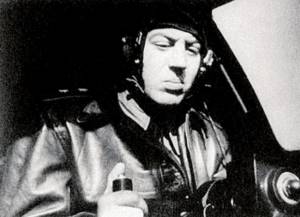
Nevertheless, historians note that Vasily was a good commander. Moreover, he knew his business well. And Vasily was simply an excellent pilot. Judging by the reviews of his subordinates, they sincerely loved their commander. After all, he did not prefer to sit in the rear and even shot down three fascist planes in a group during the war and two when engaging them in one-on-one combat.
Which countries will compete for Russian tourists this summer?
A married couple rode a python on the hood of their car: photo
“You always have to love”: Andrei Myagkov about life, art and love
Air Force service
Two years after the victory over Nazi Germany, Vasily Stalin was appointed commander of the Air Force of the central district. While in this post, the leader's son did a lot of useful things to improve the morale, discipline and qualifications of pilots. He also initiated the construction of a sports complex, which became a subordinate institution of the Air Force.
Vasily Stalin was one of the first to improve the sports training of aviators: under his leadership, strong football and hockey teams were created. As a boss, he did a lot for his subordinates: he built houses for them, knocked out a good building for their headquarters.
View this post on Instagram
A post shared by ✰ CCCP ✰ (@cccp_rus) on Jun 28, 2021 at 2:47am PDT
Vasily Stalin in his youth
In 1950, a tragic incident occurred: the best Air Force football team crashed while flying to the Urals. According to the recollections of people close to Stalin’s family, Wolf Messing himself, with whom Joseph Vissarionovich often communicated, warned the leader about this plane crash. Vasily's flight on this flight was immediately cancelled, as a result of which he remained alive. This incident was kept silent for a long time, until the 90s. It was established that another team was urgently called to that match and played for the dead.
The random deaths of his subordinates haunt Vasily. So, in 1952, at the May Day demonstration, it was he who gave the order to conduct a demonstration flight of fighters during non-flying weather. The aircraft passed in disorderly rows, and upon landing, two of them crashed. In addition, Stalin’s son began to appear drunk more and more often at staff meetings. This was enough for Vasily Iosifovich to be stripped of all powers.
An angry father forces his negligent son to attend lectures at the Military Academy, but Vasily ignores the classes. He justified his addiction to alcohol by saying that he would live only until his father died.
Childhood
Immediately after the funeral of I.V. Stalin, and after and during the turbulent perestroika 90s, many historians and writers sought to characterize Vasily as a rude, boorish, alcoholic and mediocre upstart. However, an impartial analysis of the character and fate of the son of the great leader of the Soviet state allows us to see a completely different picture.
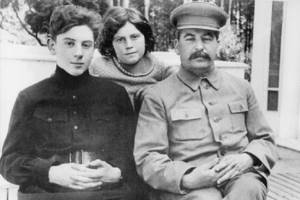
From a young age, the boy had to grow up under the weight of the moral awareness that he was the son of Stalin himself. And it is not surprising that, as a schoolboy, and later becoming a cadet at a flight school, Vasily sought to extract various benefits from the very fact of his origin.
Homemade spray for a clean shower. Apply daily and do not need to be washed off
Al Capone's 100-year-old "moonshine distillery" found in the USA - photo
We take soap bubbles and go out into the cold: mother and son make real masterpieces
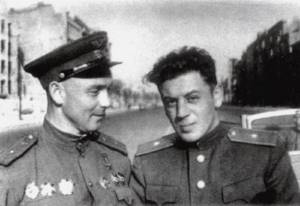
At the same time, he certainly shared everything that the young man received with his friends and acquaintances. However, after the father found out about his son’s tricks, he found himself in disgrace for some period.
Arrest
Vasily turned out to be partly right. After the death of Joseph Stalin, at his funeral, his son immediately began talking about a conspiracy against his father and his murder. Such a herald was unprofitable for the party elite: they fabricated a case against Vasily about embezzlement of state funds and placed him in the Vladimir Central under the name Vasily Vasiliev.
He spent 8 years in prison, while Vasily’s health improved, as he was deprived of booze and worked hard. Stalin's son mastered turning skills well.
Father's death
As Vasily Stalin foresaw, his career ended in March 1953. After the death of his father, a serious struggle for power began. Vasily could take part in it, siding with Bulganin, Malenkov, Beria or Khrushchev. However, he acted differently. Instead of supporting a certain candidate for the position of ruler of the country, he began to increasingly go on sprees, during which, while drunk, he accused representatives of the party elite of killing his father.
“Electra”, in tune with our time: the premiere of the opera took place in St. Petersburg
How much did Valentine's Day cost Russians: survey results
No longer in fashion: models of white shirts that you need to get rid of before spring
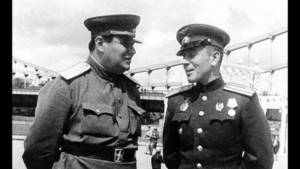
The young and knowledgeable lieutenant general, who also had an explosive character and unrestrained in his actions and words, became dangerous for the top officials of the Soviet state. That is why it was decided to get rid of it as soon as possible. To begin with, the leader's son received an offer to voluntarily leave his post and head the Air Force of one of the remote military districts (to choose from). After all, Vasily Stalin was an excellent organizer and pilot. However, he flatly refused such an offer. Vasily remained in Moscow, doing this contrary to the order received from the Air Force commander.
Death
After his release, he is forced to leave for the city of Kazan, closed to foreigners, where Vasily settles in the center in a one-room apartment at the beginning of 1962. But, before he could live to see his birthday, he died suddenly from intoxication due to alcohol poisoning.
Vasily Iosifovich was buried under the name Dzhugashvili, which he finally agreed to after long negotiations with the KGB. Later, in 2002, his remains were moved from the Kazan cemetery to Moscow Troekurovskoye. At the end of the century, the Russian Prosecutor's Office posthumously dropped all charges against Vasily Stalin.
Published by Ivanov Egor Tuesday, January 17, 2017
Vasily Stalin's grave
In recent years, Russian television has produced many films about the son of Joseph Stalin, including the documentary film “Reckoning,” which reveals many secrets from the life of Vasily Stalin. A lot of work is being done to restore reliable facts from the life of the party elite, which are important for a deeper understanding of historical processes in Russia.
But there are also fantastic hypotheses, for example, speculation about some mysterious plan for burying the party’s gold. According to some researchers, Vasily Stalin was also involved in it. He encrypted the plan in the carving of the handles of three knives, which he forged back in the Vladimir Central.
Discipline problems
The hot southern temperament, specific upbringing and young age of Vasily Stalin merged into one explosive mixture. It cannot be said that he was uncontrollable, but his passion for “hussarism” and hooligan antics is undeniable. He several times became a participant in such incidents that if he had not been Stalin’s son, he would definitely have been court-martialed and, at best, went to a penal company to atone for his guilt with blood.
In April 1943, a group of pilots decided to organize fishing in a pond near the airfield. And everything would have been fine, but they decided to fish “military style” - to suppress the fish with ammunition. Or more precisely, with rockets. And Vasily Stalin, being the regiment commander, not only did not prevent this, but also took an active part. The result was sad: the shell exploded right in the hands of the engineer, who was scattered to pieces. Another pilot was wounded by shell fragments. Vasily himself was wounded in the leg, his heel was crushed.
Army commander Gromov, who learned about the incident, almost suffered a heart attack. The wounded Vasily was taken on Gromov’s plane to Moscow. After the operation, he was treated in the hospital. At this time, my father personally wrote an order to remove Vasily Stalin from office for drunkenness and moral decay and ordered the order to be read out in front of the line.
Vasily was transferred to another regiment as an instructor pilot. Still, Stalin was incomparably softer towards his youngest son than towards his eldest; for such an incident, any other officer would most likely have been court-martialed.
A year later, Stalin considered that the punishment was enough, and returned his son to the active army, and even with a promotion. 24-year-old Vasily became the commander not of a regiment, but of an entire division. But even after that he did not come to his senses. After the liberation of Siauliai, Vasily took a tractor from the airfield and went on it to the village for moonshine, and even beat an NKVD officer who tried to stop him.
An impartial description of Vasily was written by his superior, corps commander Beletsky: “He has good organizational skills and strong-willed qualities. energetic, very proactive. By nature he is hot and quick-tempered, allows for intemperance, there have been cases of assault towards subordinates. In his personal life he commits actions that are incompatible with his position as a division commander; there have been cases of tactless behavior at flight personnel evenings, and rudeness towards individual officers. He can command a division subject to the obligatory condition of eliminating the indicated shortcomings.”
Stalin, apparently, considered his son’s shortcomings insignificant and left him at the head of the division. And soon after the war, he was promoted to corps commander, awarding 26-year-old Vasily the rank of major general.
